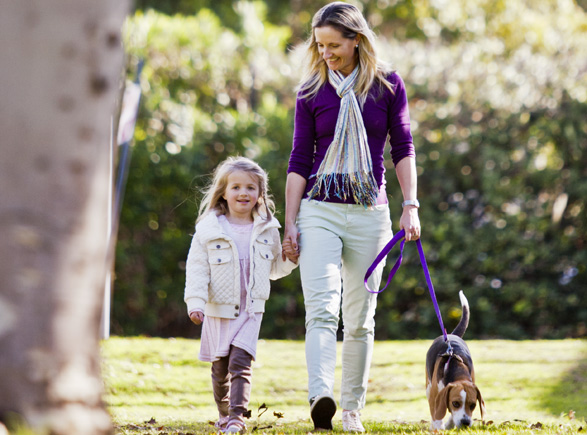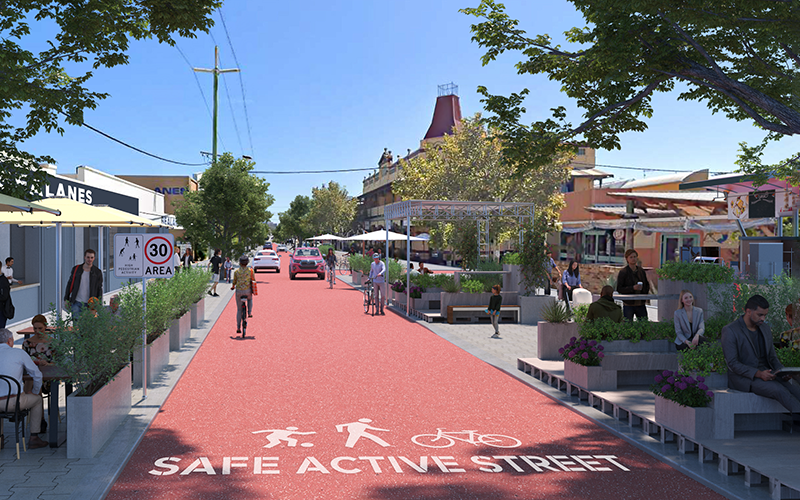Search
Research
A mobile health intervention to encourage physical activity in children: a randomised controlled trialDespite immense benefits of physical activity on health and developmental outcomes, few children achieve recommended daily levels of physical activity. Given more than half of families with children own a dog, we investigated the effect of a mobile health (mHealth) intervention to encourage dog-facilitated physical activity through increased family dog walking and children's active play with their dog.
Research
Parents' Perceptions of the Neighbourhood Built Environment Are Associated with the Social and Emotional Development of Young ChildrenThe influence of the neighbourhood built environment on young children's physical development has been well-documented; however, there is limited empirical evidence of an association with social and emotional development. Parental perceptions of the neighbourhood built environment may act as facilitators or barriers to young children's play and interactions in their local environment. The aim of this study was to examine the associations between parents' perceptions of the neighbourhood built environment and the social-emotional development of children aged two-to-five years.
Research
A cross-sectional study of factors associated with regular dog walking and intention to walk the dogDog walking is important for public health and dog welfare, yet some owners do not walk with their dogs regularly. This study examined factors associated with participation in regular dog walking and intention to dog walk, in order to inform physical activity interventions.
Research
Longitudinal evidence of the impact of dog ownership and dog walking on mental healthEmerging evidence supports the physical health and social benefits of dog ownership. This study examined the longitudinal effect of dog ownership and dog walking on mental health.

News & Events
Healthway supports innovative mental health, physical activity research at The KidsThe Kids Research Institute Australia and The University of Western Australia researchers have been awarded more than $1 million in funding from Healthway, for projects to improve the mental health of LGBTQA+ young people, encourage early physical activity in childcare centres and create healthier local environme

News & Events
Dogs are more than companions, they are great for our mental wellbeingA new study has highlighted the positive impact dog ownership has on our mental health.

News & Events
Family dogs help kids move and sleep more: new studyResearchers exploring the potential health benefits of pets have found children who regularly walk and play with a family dog are more active, have less screen time, and sleep more.

News & Events
Premier’s Science Awards finalists recognised for work in physical activity, cancer and mental healthFour The Kids Research Institute Australia researchers from a diverse range of fields have been named as finalists for the prestigious 2022 Premier’s Science Awards.

News & Events
More pedestrians, less cars: Researchers call for shopping strip overhaulResearchers have identified 10 Australian shopping strips where the removal of on-street parking would transform the area’s liveability.
Research
Energy drink intake is associated with insomnia and decreased daytime functioning in young adult femalesTo investigate the association between energy drink (ED) use and sleep-related disturbances in a population-based sample of young adults from the Raine Study.
